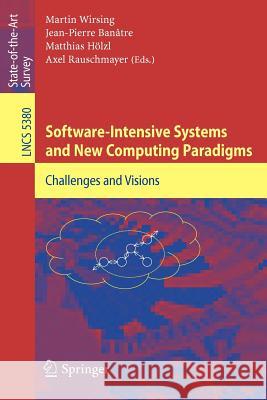Software-Intensive Systems and New Computing Paradigms: Challenges and Visions » książka
Software-Intensive Systems and New Computing Paradigms: Challenges and Visions
ISBN-13: 9783540894360 / Angielski / Miękka / 2008 / 267 str.
Software-intensive systems have become increasingly important for a multitude of products and services from all sectors of the economy, our national and - ternational infrastructure, and our daily lives. The ongoing decrease in size and cost of microprocessorsandstoragedevicesis leading to the development of ever more distributed and decentralized systems. Systems are assembled as dynamic federationsofautonomousandevolvingcomponents insteadof monolithicapp- cations, they perform tasks of staggering complexity with continuously cha- ing requirements and in a permanently evolving environment. In the near - ture novel technologies will allow the construction of systems with millions of nodes, and systems will be likely to containsubsystems basedonnew computing paradigms such as molecular computing. To identify these emergent trends, their impact on the information society in the next 10 15 years, and the challenges they present to computing, software engineering, cognition and intelligence, the European Commission has estab- 1 lished two Coordinated Actions: initially the project Beyond the Horizon 2 and then, starting in 2006, the project InterLink . Both projects are coor- nated by the European Research Consortium for Informatics and Mathematics (ERCIM EEIG) and funded by the Future and Emerging Technologies (FET) Unit of the European Commission. The ongoing project InterLink is composed of three thematic working groups: software-intensive systems and new comp- ingparadigms;ambientcomputingandcommunicationenvironments;intelligent and cognitive systems. This volume presents the results of the working group on software-intensive systemsandnovelcomputing paradigms.Theobjectivewasto imaginethela- scape in which the next generations of software-intensive systems will operate."











